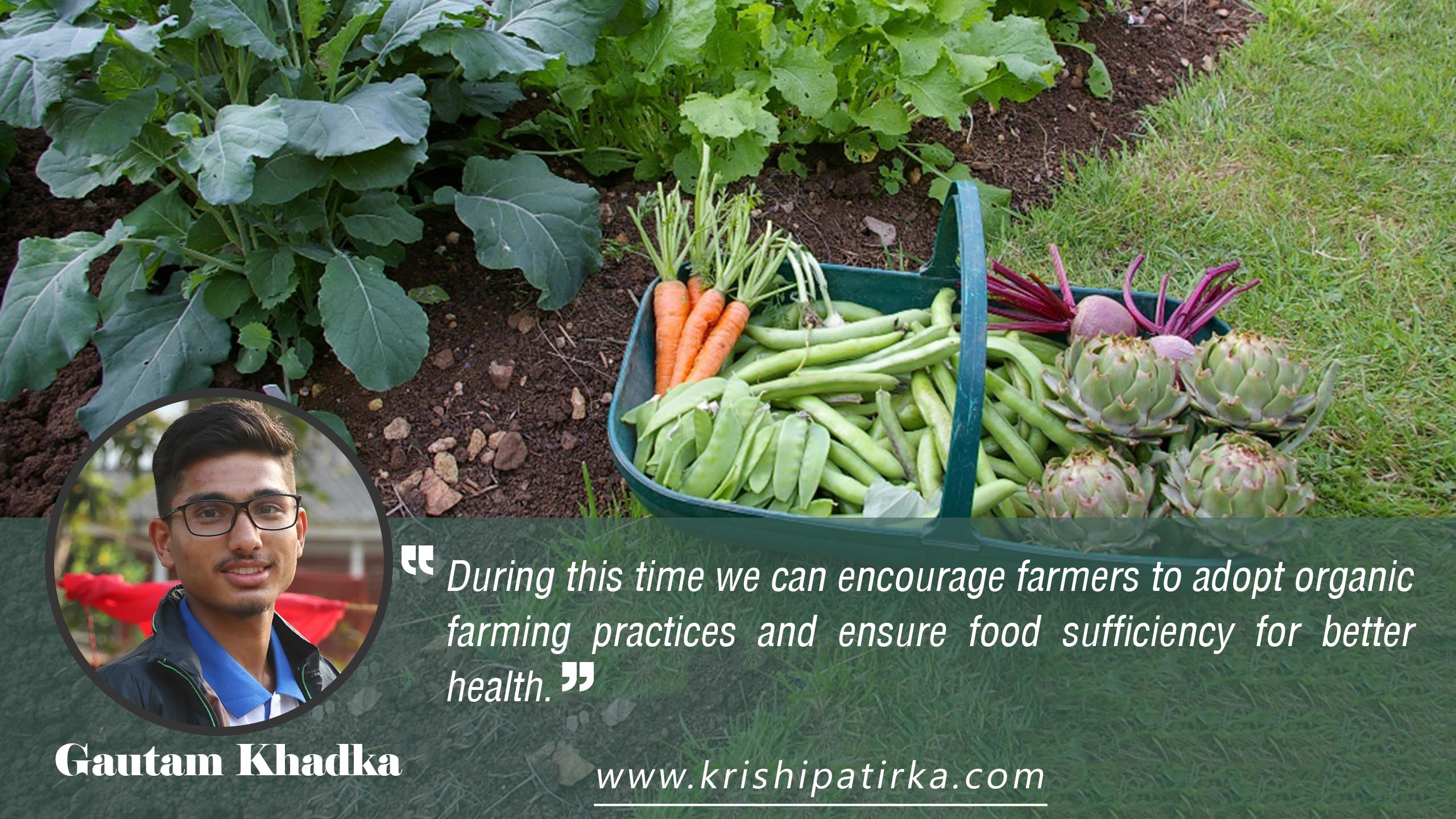
Organic agriculture is a very common word in Nepali agriculture sector. Over a century, traditionally farmers in hills and mountains are following the farming practice, which is similar to organic farming. However, many of them have no idea that their traditional practice is called organic agriculture. Because of the lengthy certification process, the produce through organic means do not get recognition as organic products. Traditional farming knowledge and skill give a positive point for promoting organic agriculture in Nepal. Organic agriculture first appeared as one of the priority sectors in Nepalese agriculture in the 10th Five Years Plan (2059/060-2063/064). But nowadays, various institutions, individuals, and farmers are emergently engaging in this field. At present, some organic products such as coffee, tea, honey, large cardamom, ginger, etc. are exported to the international market.
It is believed that Nepalese farmers are more committed for organic farming, compared to other south Asian countries. But nowadays particularly youth are distracting from the agriculture field. They think once they have some academic degree, it’s not good to work in the agriculture field and play with mud, plow, FYM, etc. And so, they move out from the village in search of employment. Research organizations like NARC, and NARDF give the least priority to organic farming. There are limited and scattered researches on organic farming, which are not properly documented and thus repeated on the limited issues. Mainly farmers are confused about the basic technologies of organic farming.
Organic farming is not only about food production; it is all about nurturing the nature and human body and developing a symbiosis. Bio-diverse systems produce more nutrition per acre than the most intensive industrial systems and also have a higher land-equivalent ratio. That means one can grow much more on the same piece of land because of symbiotic relationships between the plants. At present, people who are suffering from different health problems and health consciousness have been the major concern of the public. In this context, organic products seem to get a good market. It has been long days COVID-19 has kept country in lockdown so, people from urban areas have returned to their villages in remote areas and engaged in agriculture. During this time we can encourage farmers to adopt organic farming practices and ensure food sufficiency for better health. Rooftop farming as well as kitchen gardening in urban areas can contribute to food sufficiency and self-reliance.
Thus, policy and program should emphasize organic food rather than market and business-oriented agricultural system. If focus is always given to the exportable market, then health certification will be always in question and the promotion of organic will be limited. Once the farmers and consumers understand organic agriculture is important for the health instead of cash, then farmers will be in favor of this type of farming and consumer will ultimately prefer organic products. Still, in hills and mountain regions of Nepal, the agriculture practice is traditional. Little effort will modify the current farming practices into organic. Similarly, kitchen gardening and rooftop farming should be encouraged in urban areas, this will certainly achieve the goals and objectives of organic agriculture.
Writer : Gautam Khadka Student in 6th semester. Institute of Agriculture and Animal Sciences, IAAS paklihawa campus.









